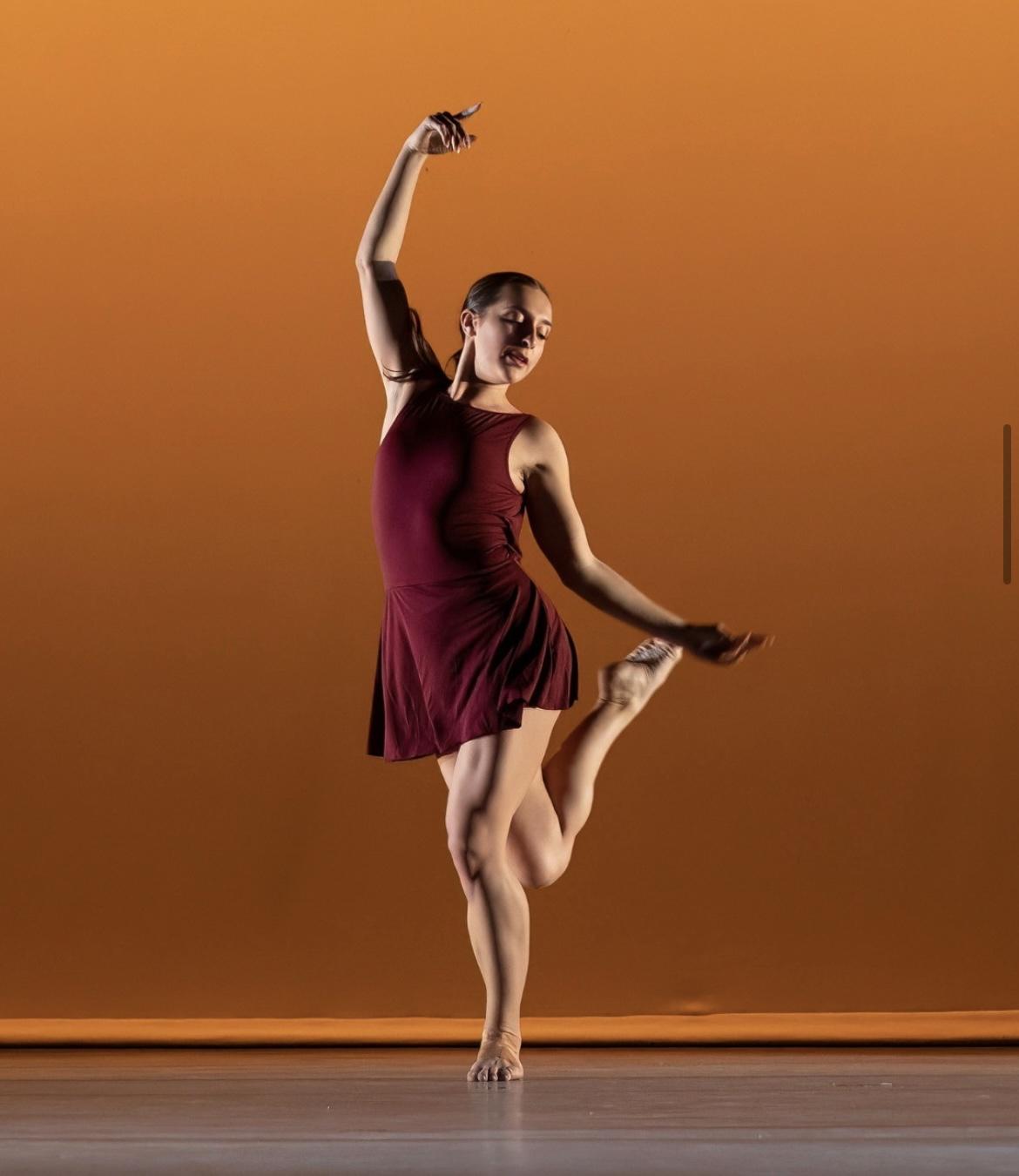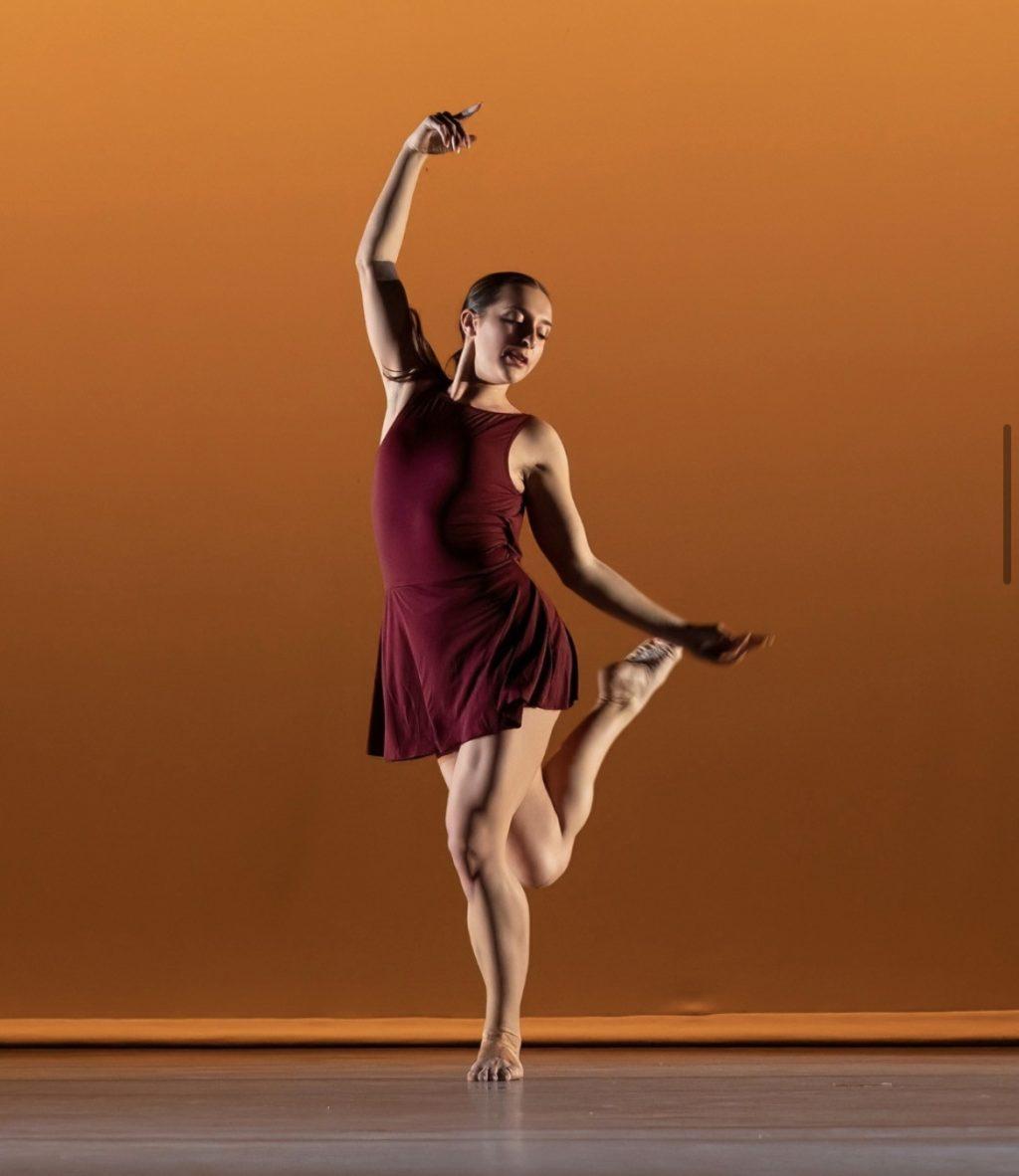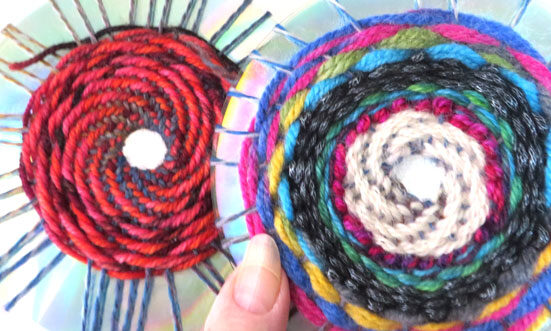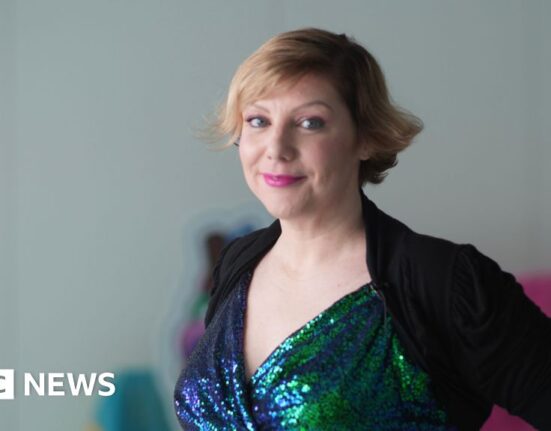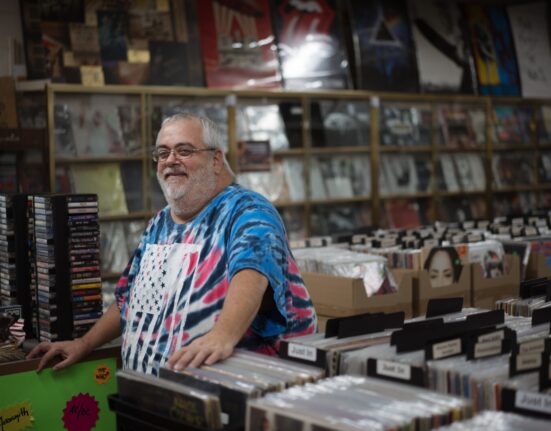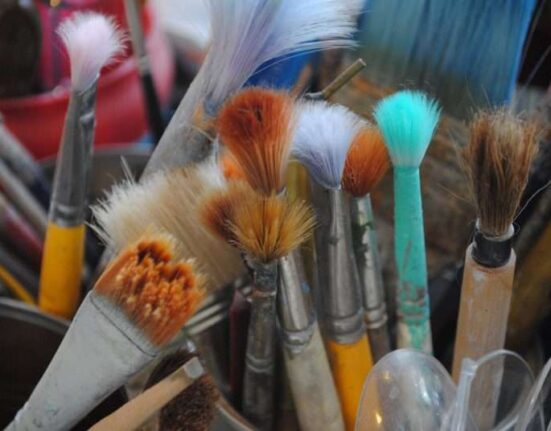Art comes in many forms. Whether it’s a stroke of a brush, a choreographed dance, a moment captured or a strum of a string — art serves as an outlet for many, students said.
Despite the different mediums art takes, the purpose of it remains the same: It is a means of expression — a vessel of vulnerability and heart. Members of the Pepperdine community said art has played a role in their life and has changed them.
“A lot of people look at art as a luxury and not something that is necessary to create some form of healing,” said Mariquita Davis, visiting assistant professor in the Fine Arts and Communication departments.
Art Tells Us About Humanity
Since Professor of Art History Cynthia Colburn started her journey in the realm of art history, she said she has seen a shift toward global art history. Focusing on global art movements allowed Colburn to realize the themes and values that unite humanity. Colburn said she believes studying art can build more empathy.
“[In art history] you start to notice the connections across different cultures, geographically but also across time,” Colburn said. “We share so many things in common.”
Art has changed throughout time but there are themes that remain unchanged, Colburn said. Art revolves around universal messages but, depending on where it’s from, can showcase different reactions to those themes.
“You can see just the creativity, the beauty, the uniqueness of different cultures,” Colburn said.
Colburn’s interest in art history sparked when she studied abroad in Europe as an undergraduate student. She said she loved all the ways in which she could look at something and observe how its context shapes its meaning.
“It [knowing the context] really brings the work to life,” Colburn said.
Art, Colburn said, keeps her open-minded. Colburn said she finds power in art’s ability to evoke emotion in the artist and their audience.
Art Is a Language
Throughout high school, junior Natalee Borum said she had a Google Doc open for whenever inspiration struck. In it, she kept her musings of poetry and prose tucked away only for her eyes to see. Borum said she hid her talents and love for writing away from her loved ones — until she entered college.
As an English Writing and Rhetoric major with a minor in Creative Writing, Borum said she’s found her voice through Pepperdine’s programs.
“The environments of the classes have been so pure and so wholesome and so sacred,” Borum said. “I feel like they’re special little nooks and crannies of Pepperdine.”
Expressionists, Pepperdine’s literary magazine, published two of Borum’s poems in their issue during her first year. Borum said this was the first time she publicly shared her writing.
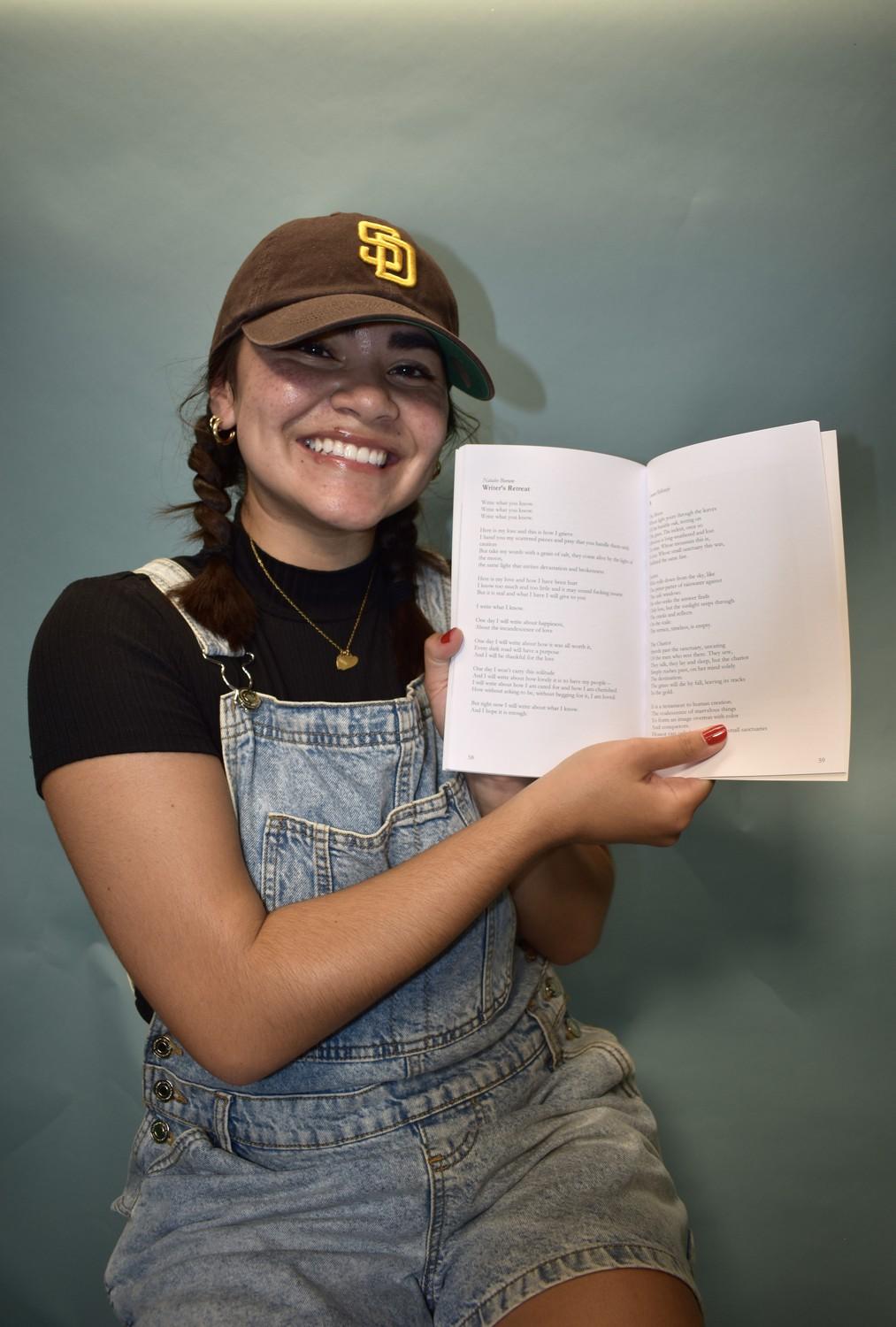
Poetry is a vulnerable art form, Borum said, and she was scared to let people into that part of her. The fact that art is up for interpretation is what fueled Borum’s fear of releasing her art to others.
“It’s like the death of the author,” Borum said. “Once you put your piece out there, people can interpret it however they want. They can do whatever they want to your work, and you can’t say no.”
What Borum said she loves the most about writing is also what she hates the most: the process. Because it’s typically deeply personal, she said it can be so draining. As a perfectionist, Borum struggles with wording things exactly as they feel, but getting it right is gratifying.
“It’s so rewarding afterward,” Borum said. “You’re like, ‘Wow, I put myself through the trenches to get this piece just the way I wanted it to be.”
Being bilingual — speaking both English and Spanish — Borum said art is a language. A secret tongue that only other artists can understand and communicate with.
“When they [two artists] talk or communicate with each other, you can tell that they’re understanding each other in a different way,” Borum said.
Art is a Means of Expression
Eugene Yi, senior Integrated Marketing Communication and Music double major, said he joined Pepperdine’s music program as a means to continue pouring into his passion.
“For me, it’s just the way to kind of step aside from the world to take some time to just enjoy music,” Yi said.
Before entering the music department, Yi said he doubted his talents and was scared. But, with the help of his esteemed professors and kind classmates, Yi said he has been able to ease his anxieties. Professors such as Naomi Sumitani helped Yi break out of his shell, he said.
Playing classical music is incredibly technical, and Yi said it adds a lot of pressure when he’s performing. A piece of advice one of his instructors gave him was to imagine there’s nobody in the room, just him. Yi said it has worked for him and helped him see the beauty in being vulnerable on stage.
“When I play by myself, I can play emotionally, like my body’s moving,” Yi said. “But, when I play in front of people, I get really stiff.”
One of the most important lessons he learned is to use music as a vessel for his emotions.
“Just play expressively, freely,” Yi said. “It’s not about getting the notes right because anyone can do that. It’s about portraying your emotions and expressing all of that to the people that are listening.”
Art is Everything
Senior Taylor Faas has always been a dancer, but she said it was around the age of 11 that she fell in love with the art form. Dance has helped her become the person she wants to be, Faas said. To her, art is a means of communicating the deepest parts of herself to others.
“Every time that I feel as though it’s hard for me to express how I feel in words, dance has always been there for me,” Faas said.
Faas has been a part of Dance in Flight, a student-run dance company on campus, for three years and is the student director for this year. She said it’s a tight-knit community who, despite their differences in style and technique, are all connected through their shared love for the art.
“The one thing that really holds us all together is that we all just love dance so much,” Faas said. “I feel like that really shines through in every Saturday rehearsal.”
When it comes to choreographing a dance, Faas said she draws inspiration from her real-life experiences and her loved ones. She said it makes her art more honest to who she is and allows for an audience to have a deeper connection.
Faas said the feeling of when she first performs a dance on stage and in front of an audience is everything to her. While rehearsing a dance is a beautiful process for her, Faas said the energy in the room during a performance is the biggest reward of dancing.
“The emotions just come pouring out of you the first time you do it when you hit the stage,” Faas said.
Art Is a Way of Being
For as long as she can remember, Davis has been drawn to the world of art through the lens of a camera. Davis does “lens base work,” which she said includes photography, videography and everything in between.
“[Art] always kept me grounded and always kept me interested,” Davis said.
The way a camera can change how people perceive the world around them and themselves is powerful, Davis said.
“Perception is everything,” Davis said. “It’s something that I think we take for granted.”
Cameras expose the dynamism within everything in their lens and engage an audience’s senses in multiple ways. This is what excites Davis the most about her work, she said.
Dedicating her entire career to creating, Davis said she has discovered the biggest myth about being an artist, which is that it is all fun. She said this misconception often blinds people from the intimidating process of artmaking
“It’s a rollercoaster,” Davis said. “It really is highs and lows.”
Davis said being an artist takes a toll on your mental wellness. It’s a constant tug of war with perfectionism and lack of motivation. One thing she said she tries to emphasize to her students is the importance of doing the work, especially when students feel stuck.
“You just do it, and it’ll be trash,” Davis said. “You will eventually get to the place that you need to be, and you can only get there by sifting through the trash. That’s just work.”
One thing that pushes Davis to continue creating despite the sometimes dreadful process is that her craft is worth nurturing. She said she doesn’t want to forget that creating is necessary for her soul.
“[Art is] a way to express what it means to make meaning out of how chaotic and beautiful and big life can be,” Davis said.
___________________
Follow the Graphic on Twitter: @PeppGraphic
Email Yamillah Hurtado: yamillah.hurtado@pepperdine.edu

